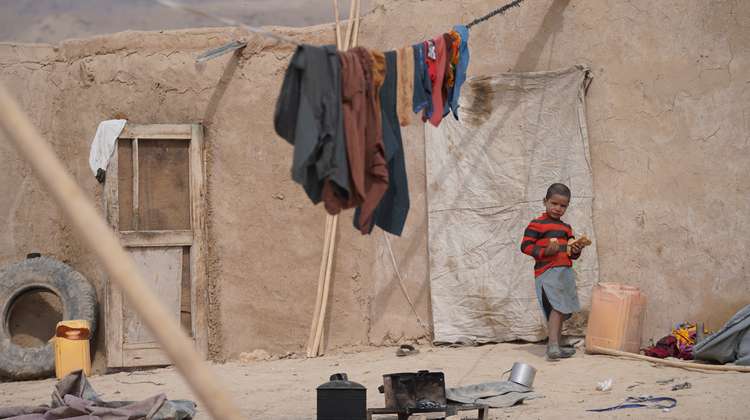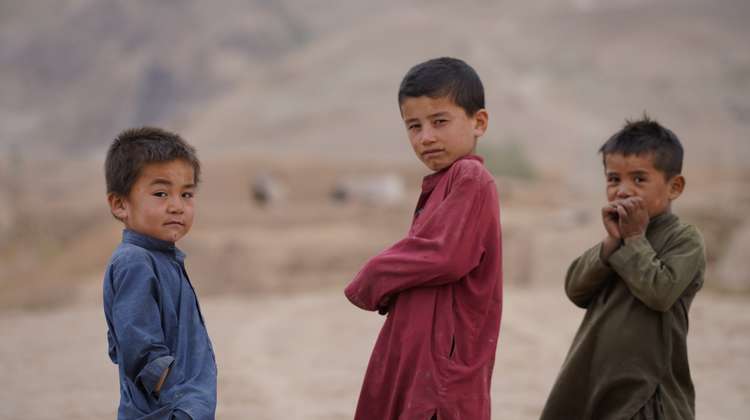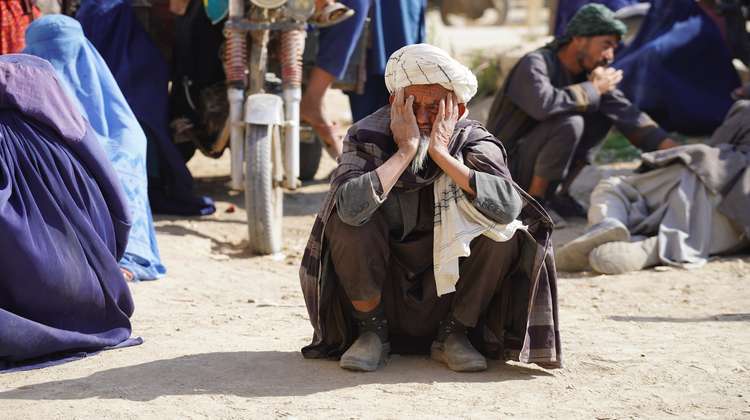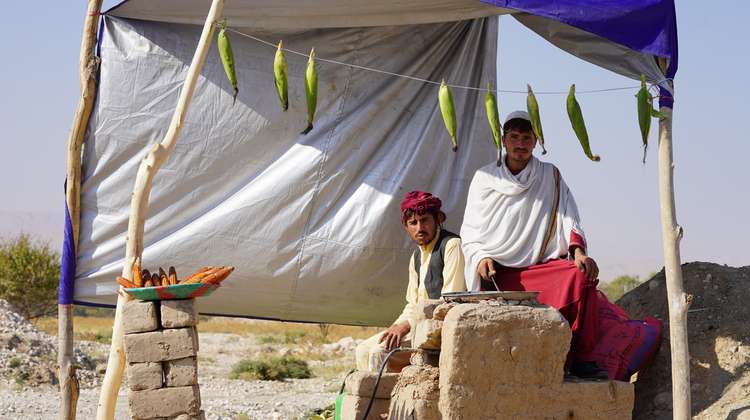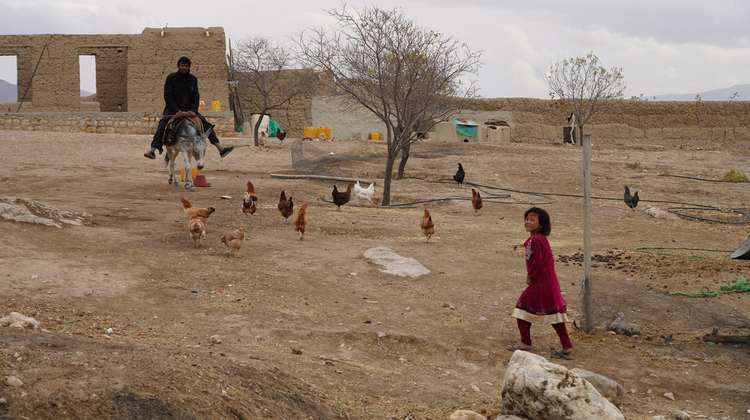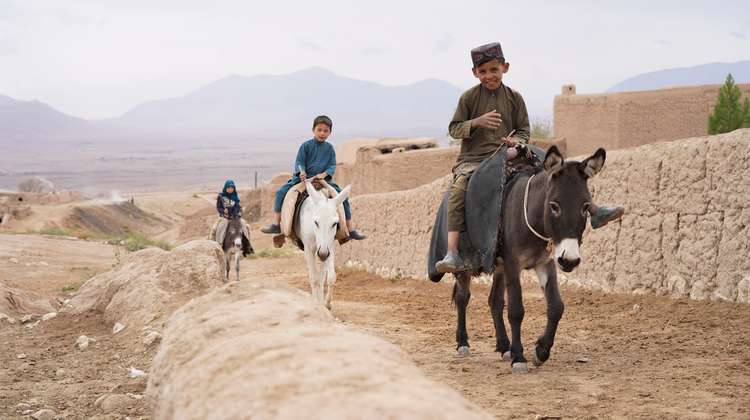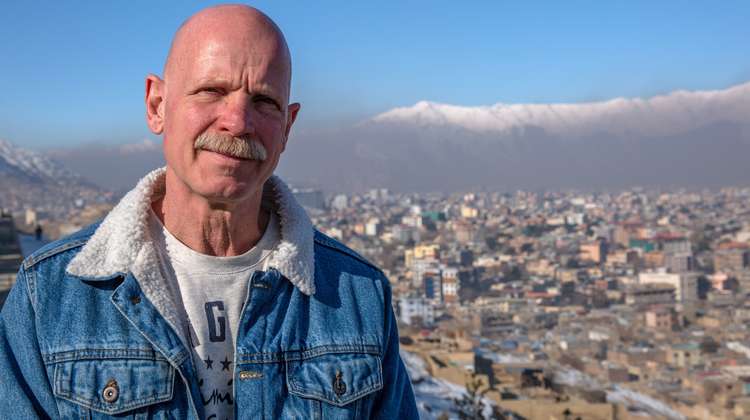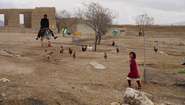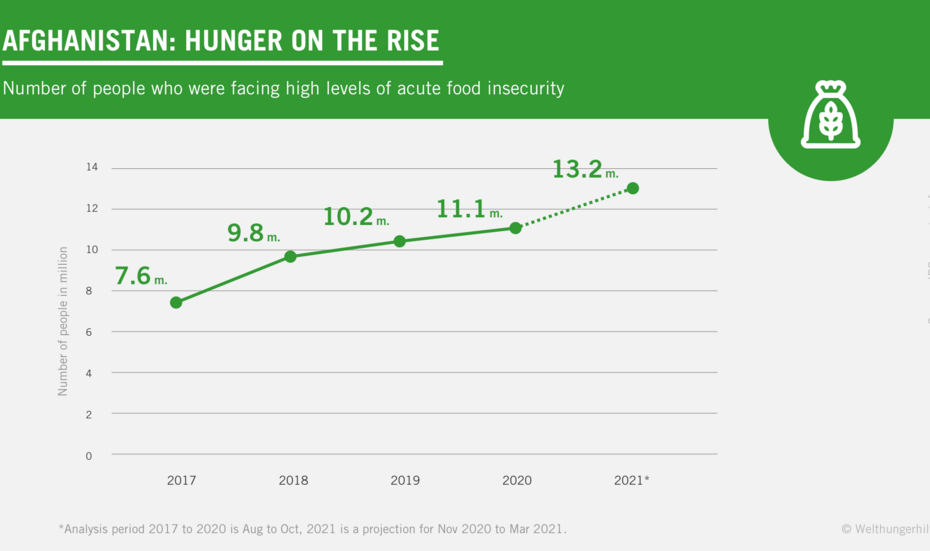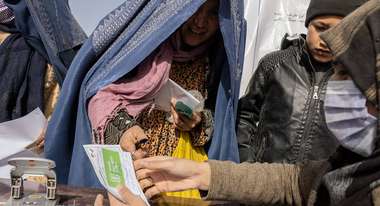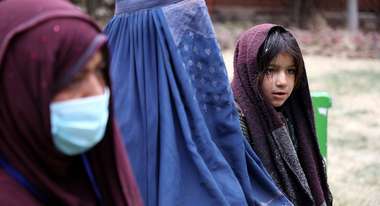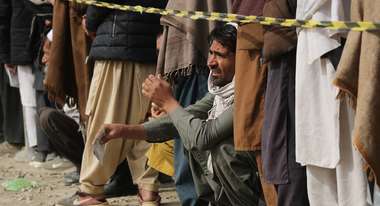Violent Conflicts and the COVID-19 Pandemic Are Exacerbating Hunger in Afghanistan
Welthungerhilfe Comments on the International Donor Conference for Afghanistan
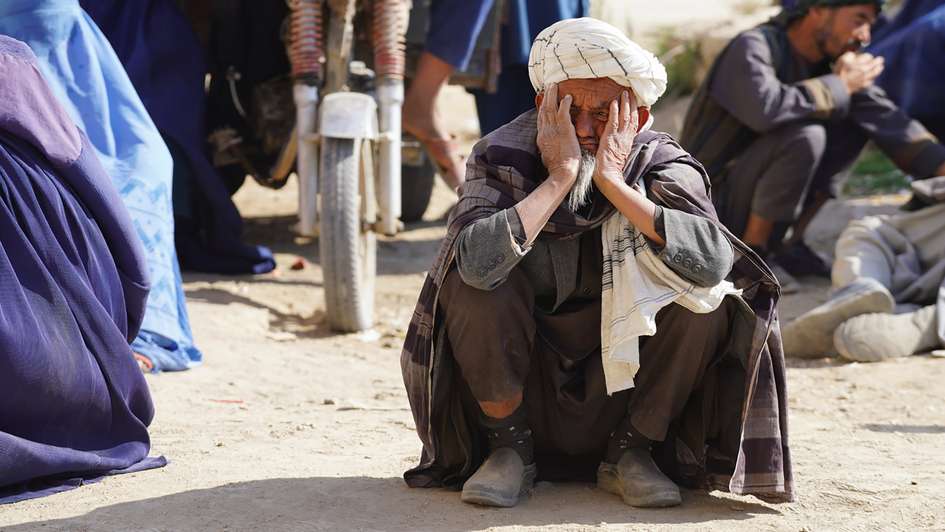
Bonn/Berlin, 2020-11-18. Dramatically rising hunger rates have left 11.1 million people in Afghanistan dependent on food aid. This is over a third of the country’s entire population. Even worse, the winter months could see this number rise to 13.2 million, warns Welthungerhilfe in the run-up to the international Afghanistan Conference, scheduled for 23 and 24 November 2020.
This rise in hunger can be attributed primarily to violent conflicts, income shortages, climbing food prices, and the effects of the COVID-19 pandemic. Compounding the fallout from 19 years of war, flooding, and recurring droughts, the COVID-19 pandemic acts as an accelerant for the existing crisis in Afghanistan and is undoing years of economic progress. This is confirmed in the latest nutrition report issued by the Food and Agriculture Organisation of the United Nations (FAO). According to the report, to which Welthungerhilfe contributed, eight out of ten families stated that their income had shrunk since last year. “Due to contact restrictions imposed early on in the pandemic, day labourers lost their jobs and merchants lost their income; remittances from Afghans abroad have fallen off for the same reason. All the while, food prices have been rising rapidly. Empty pockets and empty markets lead to empty plates”, warns Thomas ten Boer, Welthungerhilfe’s country director for Afghanistan. “Many people have exhausted their savings and supplies. Their overriding concern is now surviving the meagre winter months, meaning that the threat posed by the coronavirus is largely underestimated.”
At the Afghanistan Conference, taking place on 23 and 24 November, the international community must offer them hope. “In the face of growing hunger, the international community must not withdraw from Afghanistan. Despite the poor security situation and difficult political and economic circumstances, people need reliable prospects and a long-awaited peace. More resources will be required to ensure proper nutrition, economic development, and a stronger healthcare system. We need to persevere in Afghanistan. We cannot let these people down”, urges Thomas ten Boer.
Welthungerhilfe has been active in Afghanistan since 1980. From the country office in Kabul and four from the regional offices in the provinces of Nangarhar, Samangan and Jawzjan, over 200 employees are currently coordinating 19 projects financed by organisations including AA, BMZ, FAO, and WFP.
Thomas ten Boer, Country Director of Welthungerhilfe in Afghanistan, is available for interviews.
Press pictures for download
Usage note:Please note that the pictures may only be used in a Welthungerhilfe context and may not be passed on to third parties. Images must bear the credit copyright "Photographer/Welthungerhilfe". No long-term archiving. Please delete pictures after use!
Infographic: Afghanistan - Hunger on the Rise
Welthungerhilfe is one of the largest private aid organisations in Germany; politically independent and non-denominational. It is fighting for “Zero Hunger by 2030”. Since it was founded in 1962, more than 9,830 overseas projects in 70 countries have been supported with 3.95 billion euros. Welthungerhilfe works on the principle of empowering people to help themselves: from rapid disaster relief to reconstruction and long-term development cooperation projects with national and international partner organisations.





